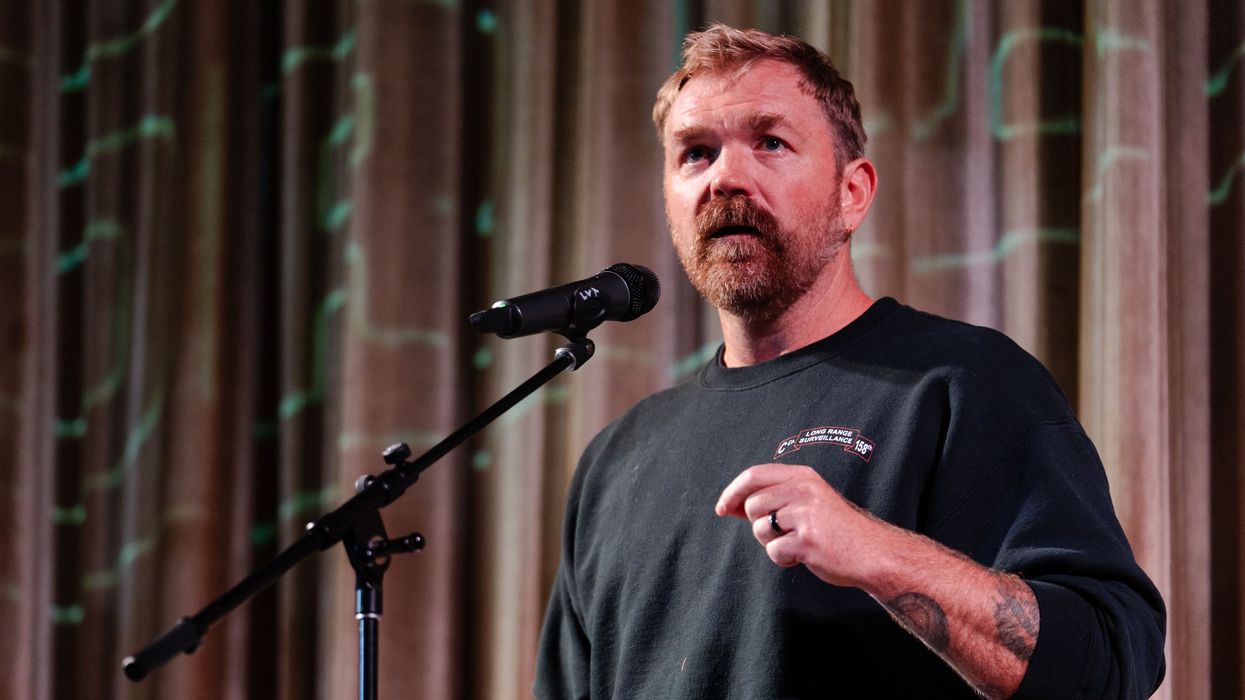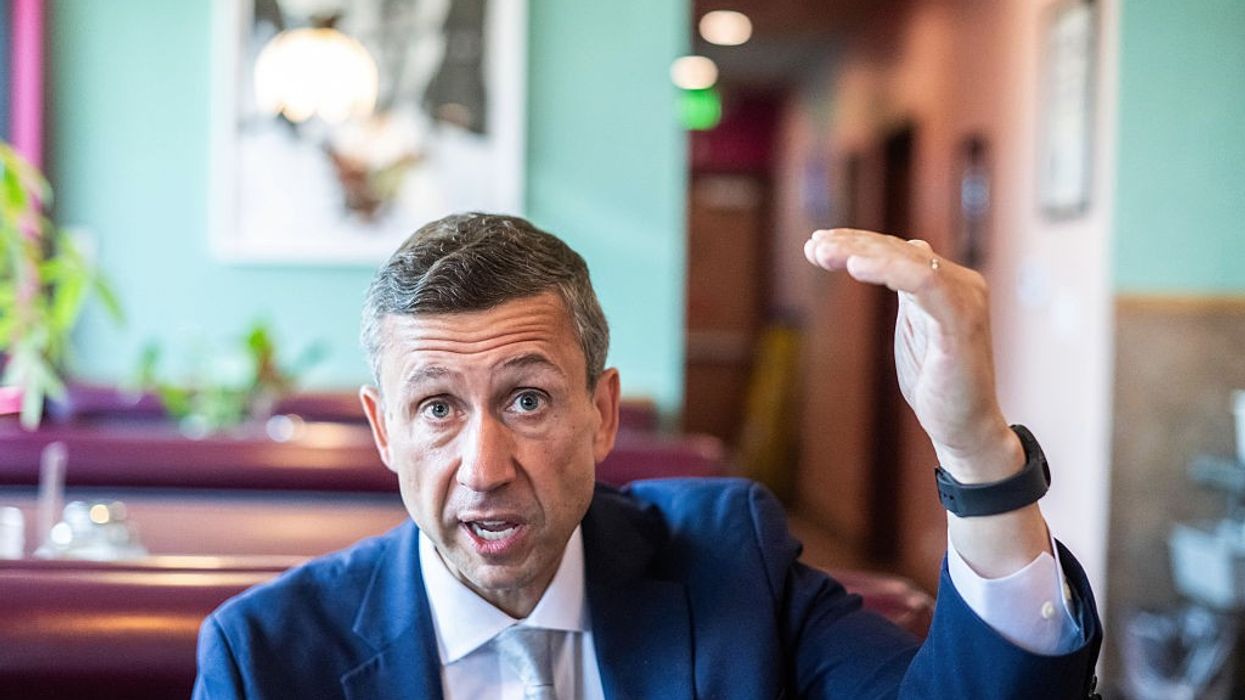July, 29 2010, 11:27am EDT

For Immediate Release
Contact:
Bustar Maitar, Greenpeace forest campaigner, (in Jakata), tel: +62 813 4466 6135
Martin Baker, Greenpeace communications, (in Jakata), tel: +62 813 1582 9513
Greg McNevin, Greenpeace communications, (in Amsterdam) +31 (0) 6 2900 1152
John Novis, Greenpeace International photo editor (in Beijing), tel: +86 (0) 1301 1851 643
Under Fire Rainforest Destroyer Caught Breaking Promises
New investigation shows Indonesia’s largest palm and pulp group still destroying critical habitats
JAKARTA, Indonesia
A new Greenpeace
investigation into the operations of Sinar Mas, one the most notorious
destroyers of Indonesia's rainforests, reveals how it is continuing to
break its own environmental commitments on protecting forests and
peatland.
Publishing new photographic evidence, aerial monitoring and
field analysis [1], Greenpeace International today details how the Sinar
Mas group continues to clear rainforest containing priceless
biodiversity - such as orang-utan habitat - and carbon-rich peatlands,
despite public promises it has made to clean up its act.
The
revelations also highlight Sinar Mas' ambitions to expand its pulp and
palm oil empire into millions more hectares across Indonesia, including
large tracts of rainforest and peatland in the province of Papua. These
ambitions are outlined in confidential Sinar Mas documents obtained by
Greenpeace. Last week, the head of Sinar Mas' palm oil division
confirmed the company's intentions to expand its empire by an additional
1 million hectares. [2]
Sinar Mas claims not to
develop on peatland and to protect forests of 'high conservation value'.
Earlier Greenpeace investigations repeatedly documented cases where
Sinar Mas operations actively cleared rainforest and peatland areas,
including tiger and orang-utan habitats. Now today's report exposes
current rainforest destruction by Sinar Mas in two of its concessions on
the island of Borneo.
In the first case, a
confidential Sinar Mas document shows that nearly one-third of the
concession area is peatland, almost all of which is deep peat that would
be illegal to develop under Indonesian law. Greenpeace photographs show
plant operators engaged in active rainforest clearance in the peatland
area. In the second case, Greenpeace photographs document recent
clearance of rainforest areas of orang-utan habitat, identified by a
United Nations Environment Programme study. [3]
In
both cases the photographs were taken by a Greenpeace photographer
accompanied by journalists from respected news operations Reuters, AFP
and Kompas.
Following the latest revelations
Greenpeace is calling on Sinar Mas to come clean and make public its
maps detailing all its landholdings, to enable analysis of which areas
are critically important for biodiversity and climate protection, and
what it is doing in those areas.
"We've caught
Sinar Mas red-handed destroying valuable rainforests, and breaching the
limited promises it has made to clean up its act. This is typical of a
group that has an appalling record of environmental destruction. Sinar
Mas has to be reigned in if there is to be a future for what's left of
Indonesia's rainforests. Until this group changes course, other
businesses should have nothing to do with Sinar Mas," said Bustar
Maitar, Greenpeace forest campaigner.
The
disclosures come on the day Sinar Mas had planned to publish an audit it
commissioned into its own activities in a small number of its palm oil
operations, in response to revelations made in earlier Greenpeace
reports. The company's audit was not designed to assess its practices
across all of its operations, but instead to examine allegations made by
Greenpeace in recent years. The evidence released by Greenpeace today
includes photographs of peat and forest clearance in a concession due to
feature in the Sinar Mas audit. PR company Bell Pottinger (which Sinar
Mas has hired to run the publicity around the audit) was this week
forced to announce it was postponing its publication.
Bell
Pottinger also represents disgraced oil trading company Trafigura,
which was convicted last week of illegally exporting toxic waste to
Africa. [4]
In recent months several leading
multinationals - including Unilever, Kraft and Nestle - have responded
to Greenpeace's evidence by ending their contracts with Sinar Mas.
However, Greenpeace is calling on others, including trading giant
Cargill, to take immediate action to remove rainforest destruction from
their supply chain.
New Greenpeace investigation, published today, can be found here:https://www.greenpeace.org/international/sinar-mas-empires-of-destructi...
***
[1] See https://www.greenpeace.org/international/sinar-mas-empires-of-destruction
[2] London Sunday Times, 25 July 2010 -
https://www.timesplus.co.uk/sto/?login=false&url=https://www.thesundaytimes.co.uk/sto/business/energy_and_environment/article353075.ece <https://www.timesplus.co.uk/sto/?login=false&url=https://www.thesundaytimes.co.uk/sto/business/energy_and_environment/article353075.ece>
(available with subscription only)
[3] The Sinar Mas concessions where this year Greenpeace found the
company breaking its commitments are:
- The PT Agro Lestari Mandiri concession in Ketapang district, West Kalimantan
The PT Bangun Nusa Mandiri concession in Ketapang district, West Kalimantan
Earlier Greenpeace reports detailing Sinar Mas practices can be found here:
- Cooking the Climate - this was our first look at the issue in 2007:
https://www.greenpeace.org.uk/media/reports/cooking-the-climate
Burning up Borneo - This is the report that Unilever have already
had audited (see below for that):
https://www.greenpeace.org.uk/media/reports/burning-up-borneo
Illegal deforestation and RSPO greenwash: Case studies of Sinar Mas:
https://www.greenpeace.org.uk/media/reports/illegal-forest-clearance-and-rspo-greenwash-case-studies-sinar-mas
Nestle and Sinar Mas:
https://www.greenpeace.org.uk/media/reports/caught-red-handed-nestl%C3%A9-sinar-mas-and-palm-oil
According to the HCV map reproduced in a January 2010 internal Sinar
Mas report obtained by Greenpeace, the PT ALM concession area contains
an extensive peat dome covering nearly one-third of the concession
area with the vast majority of this 3 metres deep, clearance of which
would be illegal under Indonesian law. Any clearance of peatland
post-November 2009 violates GAR explicit policy and SMART commitments.
[4] The Guardian, "How UK oil company Trafigura tried to cover up
African pollution disaster", 16 September 2009,
https://www.guardian.co.uk/world/2009/sep/16/trafigura-african-pollution-disaster
The Guardian, "Trafigura fined EUR1m for exporting toxic waste to
Africa", 23 July 2010,
https://www.guardian.co.uk/world/2010/jul/23/trafigura-dutch-fine-waste-export
Greenpeace is a global, independent campaigning organization that uses peaceful protest and creative communication to expose global environmental problems and promote solutions that are essential to a green and peaceful future.
+31 20 718 2000LATEST NEWS
'No War With Venezuela,' Says Maine US Senate Candidate Graham Platner
"It should not be an option in our government to allow a failing presidency to just start a war because they feel like it's politically expedient," said the progressive running to unseat Republican Sen. Susan Collins.
Dec 18, 2025
The progressive running to unseat Republican US Sen. Susan Collins of Maine is speaking out forcefully against President Donald Trump's march to war with Venezuela, warning of alarming parallels with the invasion of Iraq over two decades ago.
In a video posted to social media on Wednesday night, Graham Platner—a Marine Corps and US Army veteran who served multiple combat tours in Iraq and Afghanistan—said it is "terrifying" to witness the US government "yet again trying to lead us into an illegal war that is going to do absolutely nothing for the average American."
"What is happening in Venezuela should not fool you into thinking that we are under attack, that we are under threat from Venezuela," said Platner, who accused the increasingly unpopular Trump administration of falling back on the "most tried and true method of failing governments, which is to go start a war."
"This is why we need to claw back war powers from the executive branch," he added. "It should not be an option in our government to allow a failing presidency to just start a war because they feel like it's politically expedient. That shouldn't even be possible, and the only reason it is possible is that we have allowed it to become possible."
Watch:
Platner's remarks came a day after Trump, who has repeatedly threatened to launch military strikes inside Venezuela, announced a "total and complete" blockade on "sanctioned oil tankers" approaching and leaving the South American nation—a move that was widely condemned as an act of war.
"No war with Venezuela," Platner wrote on social media in response to the president's announcement, expressing a view shared by 63% of US voters, according to one new poll.
Platner's vocal condemnation of Trump's military aggression toward Venezuela and warnings about regime change contrast sharply with his electoral opponents' relative silence on the issue, which has drawn international alarm and outrage.
Maine Gov. Janet Mills, Platner's establishment-backed competition in the Senate primary, told Common Dreams in a statement that "Congress should be exercising its oversight and war powers authority" to constrain Trump. The comments appeared to be Mills' first public statement on the potential military conflict with Venezuela.
"Unsurprisingly, the president's objectives and strategy are unclear as he drives us closer to a costly and unnecessary war," Mills said, adding that, "unlike Susan Collins," she would have supported a recent war powers resolution that nearly every Republican senator voted to block last month.
Collins, according to the Associated Press, gave opponents of the war powers resolution "the decisive 50th vote to defeat it" when it came up for a vote on November 6.
If passed, the measure would have required Trump to "direct the removal of United States Armed Forces from hostilities within or against Venezuela that have not been authorized by Congress."
"The power to wage war constitutionally was given to the legislative branch to make sure that this exact kind of scenario did not happen."
Senate opponents of Trump's military aggression toward Venezuela directly and his ongoing, deadly strikes on boats in international waters are not giving up on efforts to rein in the lawless president.
Sen. Ruben Gallego (D-Ariz.), an Iraq War veteran who has warned Trump is on the verge of launching "Iraq War 2.0," introduced a resolution on Wednesday aimed at halting the president's campaign of extrajudicial executions in the Caribbean and eastern Pacific.
"The decision to use military force is one that requires serious debate, and the power to declare war unambiguously belongs to Congress under the Constitution,” said Gallego. “As an Iraq War veteran, I know the costs of rushing into an unnecessary war and that the American people will not stand for it.”
Platner echoed that sentiment in his video message on Wednesday.
"The power to wage war constitutionally was given to the legislative branch to make sure that this exact kind of scenario did not happen," said the US Senate candidate. "The only way that we can keep it from happening again is to make sure that the power to wage war returns to the representatives of the people."
Keep ReadingShow Less
China Rips US ‘Warmongers’ as Trump Admin Proposes $11 Billion Taiwan Arms Sale
China's foreign minister warned that US weapons sales to Taipei "will only accelerate the push towards a perilous state of military confrontation across the Taiwan Strait."
Dec 18, 2025
The Chinese government on Thursday condemned the Trump administration's announcement of a proposed $11 billion weapons package for Taiwan, a move that Beijing said violates both the "One China" principle and an agreement in which the US pledged to reduce arms sales to Taipei.
The US State Department said the record $11.154 billion package contains a broad range of weaponry and other military equipment, including Lockheed Martin High Mobility Artillery Rocket Systems (HIMARS), Lockheed Martin Army Tactical Missile System (ATACMS) long-range missiles, BAE Systems M109A7 self-propelled howitzers, drones and tactical software, Javelin and TOW missiles, and M2A1 machine guns and other armaments.
"This proposed sale serves US national, economic, and security interests by supporting the recipient’s continuing efforts to modernize its armed forces and to maintain a credible defensive capability," the State Department said in a statement. "The proposed sale will help improve the security of the recipient and assist in maintaining political stability, military balance, and economic progress in the region."
Taiwanese leaders thanked the US for its continued efforts to help the island defend itself.
However, Chen Binhua, spokesperson for China's Taiwan Affairs Office, blasted the proposed sale as “flagrant interference in China’s internal affairs" that "severely undermines China’s sovereignty and security interests and sends erroneous signals to separatist forces."
Chen said that the arms package "gravely violates" the "One China" principle, which, to the US means that the People's Republic of China (PRC) is “the sole legal government of China," but to Beijing means that Taiwan—which it views as a breakaway province—is an inseparable part of the Chinese nation.
While the US acknowledges the PRC's position that there is but one China, Washington does not recognize or accept Beijing's stance. Although it has no formal diplomatic relations with Taipei, the US is obliged under the 1979 Taiwan Relations Act to "provide Taiwan with arms of a defensive character."
China says this directly contradicts US obligations under the so-called "Three Communiques" with Beijing—especially an August 17, 1982 agreement under which Washington pledged that it would respect PRC sovereignty and that it "intends gradually to reduce its sale of arms to Taiwan."
China has accused the US of violating the August 17 communique with each of its many arms sales to Taiwan.
"We urge the United States to immediately cease its policy of arming Taiwan and to stop condoning and supporting separatist forces advocating Taiwan independence," Chen said Thursday. "We urge the United States to exercise the utmost caution in handling the Taiwan issue.”
Chen added that US "warmongers" and Taiwan's ruling Democratic Progressive Party—which he accused of “stubbornly pursuing independence”—risk turning the island into a "powder keg" and the Taiwanese people into "cannon fodder."
Under pressure from the Trump administration to buy more US arms, Taiwanese President Lai Ching-te last month announced a special $40 billion budget for the purchase of weapons between 2026 and 2033.
The latest proposed US arms sale follows Congress' passage of the 2026 National Defense Authorization Act (NDAA), which authorizes up to $1 billion in funding for Taiwan's defense. US President Donald Trump is expected to imminently sign the record $900.6 billion bill into law.
Chinese Foreign Ministry spokesperson Guo Jiakun said Thursday that the US effort to contain China by arming Taiwan is "doomed to fail."
"It will only accelerate the push towards a perilous state of military confrontation across the Taiwan Strait,” he added.
Keep ReadingShow Less
‘Feckless’ Ken Martin Rebuked Over DNC Decision to Bury Autopsy of 2024 Election Disaster
"You can’t run as the party of democracy and transparency and then stick your own election autopsy in a drawer," said one critic.
Dec 18, 2025
The Democratic National Committee on Thursday drew strong criticism when it was revealed that the party's autopsy of its failures in the 2024 presidential election would not be publicly released.
According to the New York Times, DNC Chairman Ken Martin has decided against releasing the report because he "believes that looking back so publicly and painfully at the past would prove counterproductive for the party as it tries next year to take back power in Congress."
The decision to keep a lid on the report, however, is already sparking a backlash.
The New Republic's Greg Sargent argued in a Thursday piece that the decision by the DNC to bury the report "should unleash harsh criticism and recriminations" because it "could end up protecting key actors inside the party from accountability over the blown but winnable contest."
Sargent then pointed the finger at Future Forward, a super PAC that he said has earned a reputation for blowing large sums of money on ineffective television ads.
"Well before Election Day, the PAC came under harsh criticism from some Democrats who argued that it hadn’t spent sufficient money earlier in the campaign on ads attacking Trump," Sargent wrote. "Other Democrats charged that Future Forward’s ad-testing model and addiction to traditional TV ads led to anodyne communications and that its flawed theory of politics caused it to refrain from sufficiently targeting Trump, letting him avoid blame for his first-term disasters on Covid-19 and the economy."
Jeff Hauser, founder and executive director of the Revolving Door Project, told Common Dreams that Martin's decision to bury the report was part of a broader pattern of a lack of accountability for US elites, an issue that he said is becoming more important" as America gets less and less equal."
"Ken Martin seems determined to become the Merrick Garland of DNC Chairs," added Hauser, "a feckless amiable sort unwilling to take on the powerful people who scream out for stringent accountability. Democrats ought to re-center their entire party around holding elites, be they from Big Tech, the Democratic Party establishment, Big Oil, or Trump's kleptocratic regime, accountable."
Rotimi Adeoye, a columnist for MS Now and former communications strategist for the American Civil Liberties Union, also accused party insiders of trying to protect elites at the expense of rebuilding public trust with voters.
"This is also happening as Congressional Dems sit at a -55 net approval," he argued on X. "If your numbers are that bad and your response is to bury the autopsy, you’re basically telling voters the insiders get protection while the base gets lectures."
Adeoye added that "you can’t run as the party of democracy and transparency and then stick your own election autopsy in a drawer," and said that "if the DNC thinks the report would 'hurt the party,' that means the problems are real and political, not analytical—and that’s exactly why people want to read it."
Journalist Yashar Ali, meanwhile, sent out a message on Bluesky encouraging DNC staffers who have access to the report to let him publish it.
"If you have access to this DNC report, please send it to me," he wrote. "I will protect your anonymity."
While the DNC isn't releasing its own report documenting party failures in 2024, the progressive advocacy group RootsAction last week published an autopsy written by journalist Christopher D. Cook, who argued that former Vice President Kamala Harris' campaign made a major mistake by trying to court so-called moderate Republican voters and corporate donors instead of focusing on the struggles of working-class Americans.
"This was a preventable disaster," Cook said, "but Harris and the Democratic Party leadership prioritized the agendas of corporate donors and gambled on a centrist path, while largely abandoning working-class, young, and progressive voters."
Keep ReadingShow Less
Most Popular


